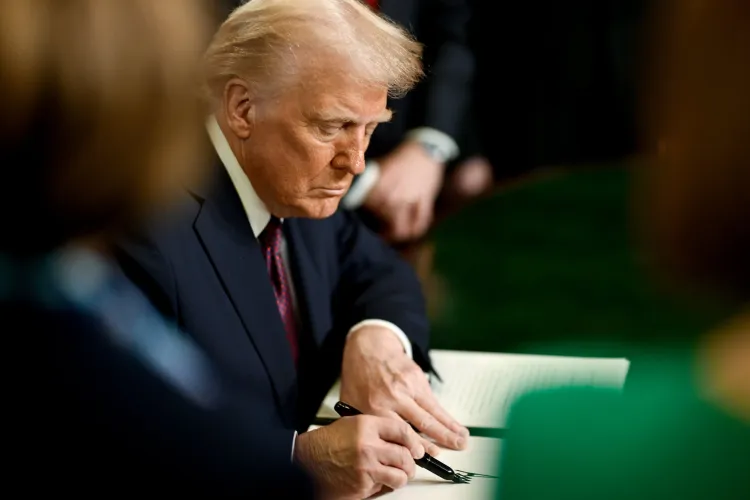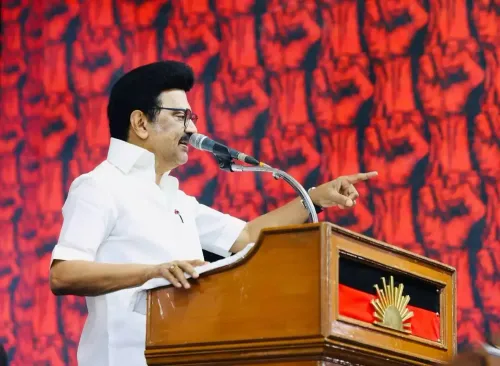What Risks Does Trump's Energy Deal with Pakistan Pose for US Firms?

Synopsis
Key Takeaways
- Trump's energy deal involves collaboration on oil exploration.
- Balochistan presents both opportunities and security challenges.
- The deal could impact US and Pakistan's geopolitical strategies.
- India's foreign policy needs to adapt to these changes.
- Insurgent activities pose risks to foreign investments.
New Delhi, Aug 18 (NationPress) President Donald Trump’s declaration of a new US-Pakistan agreement aimed at collaboratively exploring Pakistan’s oil reserves has introduced further intricacies into South Asian geopolitics, as the agreement signifies far-reaching implications beyond mere energy development.
Although Trump has alluded to “substantial oil reserves,” Pakistan’s conventional crude output remains relatively modest on a global scale. The nation’s proven reserves are approximately 238 million barrels, a mere fraction in comparison to Middle Eastern nations.
Pakistan's genuine potential lies in its abundant natural gas resources, estimated at 18 trillion cubic feet, alongside recoverable shale oil reserves estimated at around 9 billion barrels, primarily located within the largely uncharted basins of Balochistan.
However, Balochistan stands as both an energy frontier and a political flashpoint. This province is rich in various minerals, including copper, gold, and chromite, and is traversed by energy infrastructure associated with the China-Pakistan Economic Corridor (CPEC). Additionally, it has been the site of a long-standing insurgency, with factions like the Baloch Liberation Army targeting pipelines, mines, and foreign contractors.
Thus, any US-led oil and gas initiative in this area would serve as a litmus test for Islamabad's internal security capabilities as much as its resource potential, as noted by retired IAS officer KBS Sidhu.
The article emphasizes the hazards present in the conflict-ridden Balochistan should US energy corporations venture into the province. The region is already home to Chinese-backed projects under CPEC and is strategically connected to Gwadar Port, which is China’s access point to the Arabian Sea. Yet, insurgent activities have repeatedly hampered projects, posing threats to foreign personnel and energy facilities alike.
For the Baloch nationalist movement, US-led resource exploitation could serve as a new rallying cry against what they view as foreign exploitation. Consequently, Washington’s involvement will not only encompass commercial risks but also wider geopolitical ramifications, likely complicating plans for both China and Pakistan in the region.
This emerging US-Pakistan energy collaboration indicates that Washington is prepared to engage Islamabad in manners that transcend traditional military aid, using commercial ventures and investments as entry points, as noted by the author.
The article further articulates that India must adapt its foreign policy to this evolving dynamic. It’s crucial to sustain momentum in Indo-US defense and technology ties, hedge on energy diversification, and leverage negotiations to mitigate tariffs. The future trajectory of US-India relations may now depend on how adeptly New Delhi can navigate Trump's transactional approach while ensuring that any new American presence in Pakistan strengthens India’s strategic position in the region rather than undermining it.
In conclusion, Trump’s oil agreement is more than just a headline; it serves as a stress test for India’s capacity to integrate pragmatic trade negotiations with comprehensive diplomacy in a rapidly evolving regional landscape, as indicated in the article.










